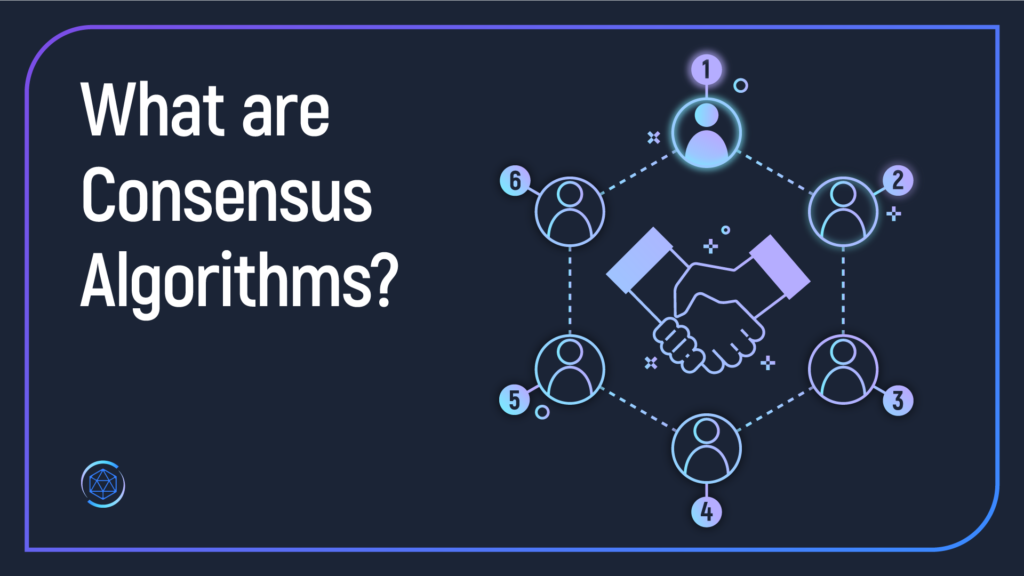What is a Consensus Algorithm?
Blockchain is a distributed ledger that guarantees data integrity, confidentiality, safety, and accountability, as we all know. The Blockchain considers each transaction safe and validated despite the lack of a central authority to authenticate and verify transactions. This concept is only feasible because of the consensus protocol, an essential component of any Blockchain network. Blockchain is the ledger on which bitcoin works.
Consensus algorithms achieve blockchain network stability and build trust amongst unknown peers in a distributed manner in this fashion.
The Blockchain consensus protocol has several goals, including reaching an agreement, cooperation, equal rights for all nodes, and required involvement in the consensus process. Understanding bitcoin taxes is one of the most popular and well-known marketing algorithms on the market. They need to double-check some of the connections on their webpage.

What kinds of consensus algorithms are available?
- Proof of work Consensus: Bitcoin uses this PoW mechanism. The main goal of this method is to solve a complex mathematical puzzle and quickly provide a solution. Because this mathematical challenge necessitates a large amount of processing power, the node that solves it first gets to mine the next block. When the input data gets passed through the cryptographic hash function, validators include an arbitrary integer called a nonce to hash minor input data changes.
- Proof of Stake consensus: In this method, all of the validators will then validate the blocks. Examiners will validate blocks by betting on them if they find one that they believe can get added to the chain. Validators receive a payout proportionate to their bets based on the actual blocks uploaded to the Blockchain, and their stake increases correspondingly.
-
- Proof of Burn consensus: In the PoB technique, coins are burnt and sent to a location where they will be lost entirely. The burning approach gives the validators the right to mine more coins. As a result, validators have a long-term commitment in return for a short-term loss when they burn tokens. While PoB is an attractive alternative to PoW, it wastes resources inefficiently. Furthermore, it gets questioned whether mining power is merely given to those ready to burn more money.
- Proof of Authority consensus: The PoA consensus method got built on the value of identities inside a network, and validators stake their names and reputation rather than resources in a system block. As a result, the validating nodes that get randomly picked as responsible parties protect PoA blockchain networks. Because the true identities of nodes are known and trusted, users may use the PoA consensus method in applications like supply chains and trade networks.
- Proof of Capacity consensus: In this method, validators with more excellent hard drive space have a better chance of being chosen to mine the next block and winning the block reward. They do not get expected to burn coins, but they get expected to provide drive space.
- Proof of Elapsed Time: PoET is one of the least egalitarian consensus mechanisms, with the next transaction chosen solely on the basis of equality. In permissioned Blockchain networks, it gets frequently used. Every validator on the web has a fair chance to construct their block using this technique. All nodes achieve this by waiting for an arbitrary time and then adding proof of their wait to the league. The barriers that have to get generated are broadcast to the network for others to evaluate. The validator with the lowest timer value in the proof section wins. Additional checks are built into the algorithm to prevent nodes from constantly winning elections and producing many nodes.
Conclusion:
Alternative compromise methods include Proof of Action, Proof of Weight, Proof of Importance, Leased Proof of Stake, and so on. Considering Blockchain communities cannot operate successfully without consensus algorithms to check almost every operation that is committed, it is critical to choose one intelligently based on the corporate networking requirements.






